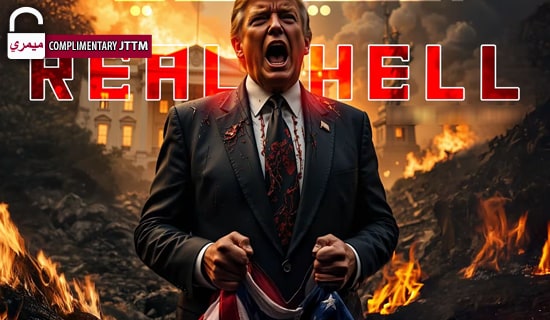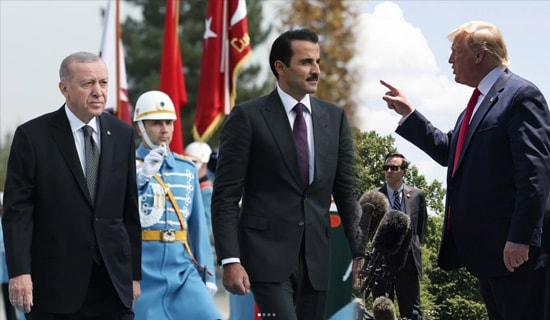Introduction
On January 31 Iraq held provincial elections in 14 of its 18 provinces. The three Kurdish provinces plus Kirkuk did not take part in the elections. The Regional Government of Kurdistan opted to carry out the elections in the three Kurdish provinces at a later date, while the case of Kirkuk reflects the profound disagreement among the Arabs, Kurds and Turkmen about its future. The elections attracted 14,431 candidates, including 3,912 women, representing 401 political bodies, competing for 440 seats. Under the elections law, women were guaranteed 25 percent of the seats.
The number of candidates, while excessive (about 33 candidates per seat), is both an indication of the level of active competitiveness which characterized these elections and an affirmation that democracy, while still tentative, may have struck some roots in the Iraqi political culture. The fact that not a single party or group was able to gain more than 38% of the votes in any one province is another indication that there was no attempt to fix the election - even if some degree of fraud or irregularities may have crept into the process when some of the voters were illiterate and tainted money was abundant.
About 51% of registered voters participated in the elections - somewhat less than the 55.7% who participated in the general elections of 2005. The elections were carried out in a peaceful and orderly fashion, providing evidence that "the years of sectarian violence and armed operations" may have started to rescind. But one must remember that the polling was carried out behind barbed wire and heavy security. [1]
While the final results of the elections have not been announced as of this writing, an analysis of the tentative results of the elections suggests that Iran's supporters and proxies in Iraq may have been dealt a serious blow. Writing about "A New-Old Political Map After the Elections," Muthana Al-Tabaqchali says the elections have demonstrated that the Iraqi voter has placed the true national interest over foreign interests. [2]
Provincial Elections: A Blow to Iranian Influence
The results of the provincial elections in Iraq represent a severe blow to the Iranian influence. The Supreme Islamic Council under Abd Al-Aziz Al-Hakim, one of the pillars of Iran's influence in Iraq, lost much of its power. After emerging as the largest political bloc in the general elections of 2005, the Supreme Islamic Council has emerged in the provincial elections as distant second to Prime Minister Nouri Al-Maliki's dawlat al-qanoun [state of law] which ran a nonsectarian and secular campaign with emphasis on Iraqi nationalism. [3] In fact, some of its candidates in the south, seeking to distance themselves from Iran, repeatedly told voters that they, the candidates, were "one-hundred-percent Iraqis." Some of the competing political parties circulated messages to the voters urging them to vote for parties that would "put an end to the Iranian influence in the Iraqi affairs." [4] During the campaign, Prime Minister Al-Maliki called on Iraqis to vote for candidates "who are loyal to Iraq." He said the results of the elections will be a blow to the enemies of Iraq. [5]
Some commentators have suggested that the Supreme Council must redraw its agenda and underscore its Iraqi orientation. Writing in the London daily Al-Sharq al-Awsat under the title: "The Elections in Iraq: Al-Maliki Sweeps, the Seculars Advance and the Iranian Influence Gets a Blow," Huda Jassim and Naseer Al-'Ali, said that observers consider the decline of the Supreme Islamic Council, the closest ally of Iran, will force it to reshape its orientation toward greater reliance on Iraqi nationalism. They suggested that the Supreme Council must reshuffle its papers to demonstrate that it is first and foremost an Iraqi political party if it is to compete successfully in the general elections that are scheduled for the end of this year or early next one. [6]
Writing in the same daily, 'Adel Darwish considers the outcome of the elections as evidence of the weakness of the Iranian influence, contrary to the estimates of experts." [7] Writing in the Iraqi daily Al-Zaman, Karim 'Abd Za'ir suggests that the Iraqi voters have punished the Supreme Islamic Council because of its pro-Iranian orientation. [8]
Iranian Consul in Basra Denounced
Iran's interest in the election's outcome is significant, particularly in the southern region of Iraq where an Iranian presence is entrenched at all levels of government, security forces, and the various religious and charitable societies; hence a small incident gained massive attention. The Iraqi authorities have given special badges to international observers from the United Nations, the Arab League and the Organization of the Islamic Conference to visit polling stations and observe the integrity and transparency of the process. The Iranian consul in Basra, Naseer Baghban, must have felt, however, that he was exempted from such diplomatic obligations, and ignoring rules governing credited international observers, he took the liberty of entering one of the polling stations in the center of town. Failing to show proper credentials, he was asked to leave the station, but was reported to have driven his car to other polling stations without attempting to enter them.
The consul's behavior caused consternation in the Ministry of Foreign Affairs, which characterized the conduct of the consul as "unacceptable and in violation of diplomatic norms." Maysoon Al-Damlooji, a member of parliament on the Iraqi List, headed by former prime minister Ayad Alawi, accused Iran of direct interference in the election process. She added pointedly, "Not only does Iran violate Iraq's border, oil and water, but it wants to interfere directly in the results of the elections." [9] What is really significant about this affair is not so much a visit by a consul to a polling station, but the level to which this basically minor incident was elevated by the press in Iraq, suggesting perhaps a growing degree of intolerance of Iranian hegemony in the southern part of the country.
The Saudi Satisfaction About the Outcome
The results of the elections must have been met with much satisfaction by Saudi Arabia, which is leading a fierce struggle to arrest Iranian influence in the Middle East. It is in this context that one should interpret an editorial in a Saudi daily titled "Democratic Iraq - A Colossal Experiment in the Region." Not mentioning Iran by name, the editorial, by Yusuf Al-Kublit, says: "Those who love Iraq appreciate the success of its democratic regime, even if democracy has been absent in the Arab countries. With its ethnic and national diversity, and [given] the nature of the successive regimes and the people's sufferings from numerous coups and wars which culminated in two occupations, from America openly, and from Iran through sectarianism, any victory [becomes] not only a savior of Iraq alone, but will break the fear barrier [rooted] in the panic from democracy…"
The editorial continues: "[A]ny country seeking to move from a highly pressurized situation into the open would unavoidably run into those quarters which carry the seeds for fragmenting Iraq and leading it toward regional orientation driven by greed and confrontations." [10]
In the same vein, 'Ali Ibrahim wrote about "the lurking forces" that were trying to convert Iraq into a dark imara [political-clerical entity] or a country led by sectarian ideology." These forces have not disappeared completely as a result of the elections, but will seek an opportunity to raise their head again, particularly given that their war is not only limited to Iraq but to the whole region.
Ibrahim sees the success of the provincial elections as reflecting the weakening of the religious parties which has sought to lead a country "that has distinguished civilization and cultural accomplishments through history into dark ages…" He added that the elections prove that "common people can, through the polling boxes, determine their future and lead themselves to safety… and that the silent majority does not like violence, and desires a decent life… rather than slogans and the exploitation of youth and the gullible to commit suicide." [11]
The Emergence of Ayad Alawi
If the pro-Iranian Abdul Aziz Al-Hakim has been punished, one of the most vocal anti-Iranian politicians, the secular Shi'te former Prime Minister Ayad Alawi, has been rewarded. His party, the Iraqi List [al-qa'ima al-iraqiya] has emerged as third or fourth in most provinces. Commenting on the elections, Alawi accused Iran: "They have supported the sectarian forces in Iraq…the majority of the sectarian forces grew up in Iran. We are far from stability, and we expect that regional countries will continue to interfere in our affairs to fill the vacuum." [12]
Conclusion
A keen Iraqi columnist, Katrin Michael, recently wrote a thoughtful letter titled "What Have the Elections Taught Me?" in which she emphasized that the results of the elections have been a major disappointment to the neighboring countries. She stated that while the success of the elections will not necessarily end Iran's ambitions in the region, they will leave their impression on the Iranian youth disenchanted with the Islamic revolution, which has destroyed the economy. [13]
Iran's meddling in the affairs of its neighbor have probably not ended, but the results of the elections have been unmistakably anti-Iranian and have been, as well, a reaffirmation of Iraqi/Arab nationalism, with its historical animosity toward most things Persian.
*Dr. Nimrod Raphaeli is Senior Analyst (emeritus) at MEMRI.
Endnotes:
[1] Al-Rafidayn (Baghdad), February 1, 2009.
[2] Al-Zaman (Iraq), February 6, 2009. Al-Tabaqchali is from a well-known Iraqi Sunni family.
[3] Al-Rafidayn (Iraq), February 1, 2009.
[4] Al-Sharq Al-Awsat (London), February 6, 2009.
[5] Al-Zaman (Iraq), January 25, 2009.
[6] Al-Sharq Al-Awsat (London), February 6, 2009.
[7] Al-Sharq Al-Awsat (London), February 7, 2009.
[8] Al-Zaman (Iraq), February 1, 2009.
[9] Al-Sharq Al-Awsat (London), February 1, 009.
[10] Al-Riyadh (Saudi Arabia), February 7, 2009.
[11] Al-Sharq Al-Awsat (London), February 3, 2009.
[12] Al-Sharq Al-Awsat (London), February 10, 2009.




.jpg)